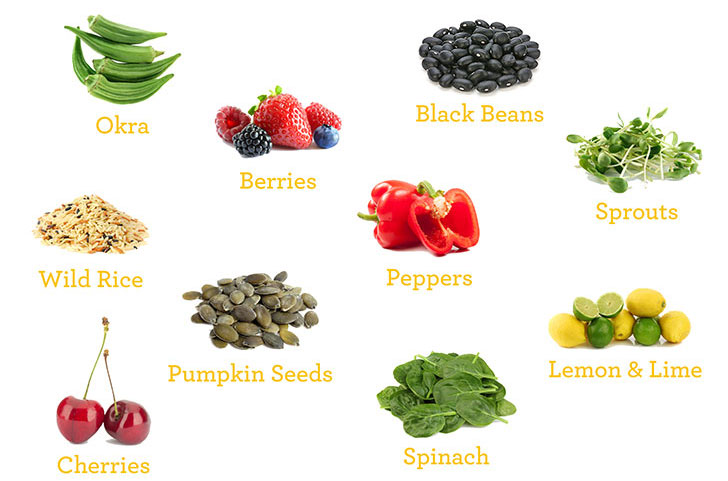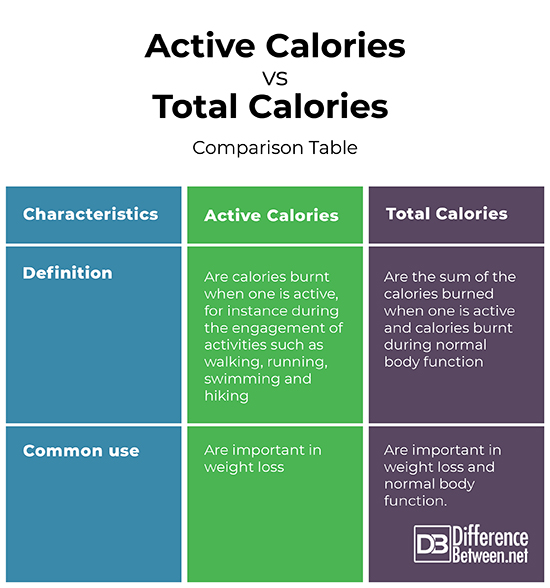
Obesity is the second leading preventable cause of death in the United States. Studies show that people who are overweight have a greater chance of dying prematurely than those who are not. Not only are there the health risks of obesity, but also mental health issues such as negative thinking and low self-esteem that can make losing weight difficult. These mental health problems can be prevented with some simple strategies.
Negative thinking
Negative thinking can hinder your efforts to lose weight. Negative thoughts can put your body in a state that causes you to eat more than necessary. Research has shown that the brain, and gut, are interconnected. Your gut is home to trillions upon trillions of microorganisms. Your overall health can be improved by learning to overcome negative thoughts. Here are some strategies to stop negative thinking and begin living a healthy, happy life.
Self-reflection
To successfully lose weight, you must take time for self-reflection. It is important to realize that weight loss is an indicator of deeper emotional needs. It is important that you question the reason for your weight loss goal. You can use a Socratic method of asking questions to get to the root of your weight loss goals. Once you have identified the motivation behind your weight-loss goal, you can use a self reflection process to help you get there.
Take control of your thoughts
Even though it might sound good, cutting out comfort foods can cause negative thoughts about our bodies. Emotional eating can be triggered by negative thoughts. While mental weight loss can be possible, it is possible to binge on unhealthy foods or revert to emotional eating if your thoughts are out-of-control. Anna Schafer Edwards, an intern in marriage and family therapy, recommends taking control of your thoughts. Ask yourself "Is it worth it?"

Time for self-reflection
For personal growth, self-reflection can be a powerful tool. New years are a good time to make new resolutions for yourself. People are trying to lose weight, quit smoking or get into an exercise routine. It is possible to make positive changes in your life by taking the time and reflecting on your behaviour. Here are some suggestions to help you self-reflect.
FAQ
What length of Intermittent Fasting should I be doing to lose weight?
The answer may not be as straightforward as you think. There are many factors that need to be taken into consideration when deciding how many days of fasting is necessary for optimal fat loss. These include:
-
Your age. For example, if you're young (under 40), intermittent fasting may be too difficult for you because you have less time to recover from each day's fast. On the other hand, if you're older (over 60), you may find that you don't have enough energy to sustain an extended period of daily fasting.
-
Your current body composition. Longer periods of fasting are more beneficial if you have a lot muscle mass. You may find shorter fasting more beneficial if your muscle mass is low.
-
How physically active are you. Regular exercise may mean that your fasting window needs to be extended to allow you to get sufficient rest between sessions.
-
Your medical history. Patients with certain medical conditions, such as heart disease, diabetes, or cancer, may need additional fasting monitoring.
-
How can you manage stress? Stressful situations often make us eat less. To avoid this problem, you may need to increase the length of your fasting windows.
-
What type of diet do you follow? Certain diets, like ketogenic diets, may require even longer fasting periods.
-
Your quality of sleep. Insufficient sleep has been associated with decreased metabolism and increased appetite. It could take some experimentation to discover the best method for you.
-
How much protein you eat. Protein helps stabilize blood sugar levels, which means that eating more protein could potentially lead to lower insulin levels. This would allow one to fast for longer periods.
-
People who want to gain weight or lose it will need to fast for longer periods of time than those trying to lose.
-
How many calories do you consume in your fasting windows? Fasting for fewer calories per days may lead to greater fat loss than fasting with more calories.
-
Your overall fitness level. People who are fit and fast burn more calories per day.
-
Your gender. Men typically have larger appetites than women, so they may need to fast for slightly longer periods of time. Women tend to have smaller appetites so they might only need to fast for 20-30 minutes each morning.
-
Your lifestyle. Do you get enough physical activity? Are you able to exercise several times per week? Do you have a job that requires you to sit at a desk all the time? These factors can impact how fast you should be moving.
-
How much money do your spend on food every day? Healthy eating doesn't mean you have to spend a lot on groceries. You can save money by buying whole grains instead of white bread, fruits instead of candy bars, and lean meats instead of fatty cuts.
-
It is vital that you control your hunger. You don't have to skip meals if you don’t want to.
Are there any side effects to intermittent fasting
Intermittent fasting is safe and has no side effects. But, it is possible to experience minor side effects if you plan poorly.
For example, if you skip breakfast, you might be irritable all day long. Other symptoms include headaches, dizziness and fatigue as well as muscle cramps.
These symptoms typically disappear in a matter of days.
What's the difference between intermittent fasting versus calorie restriction
Calorie restriction is when you eat less than your body needs. Intermittent fasting is different because it doesn't involve restricting calories. Intermittent fasting focuses more on eating fewer calories every day.
Intermittent fasting can be more effective as it allows you to eat the foods you love and not feel guilty.
Both methods have pros and cons. You will need to decide which method is best for you.
What can I have in the morning when I'm intermittently fasting?
Drink water before you go to bed at night. It will help you feel fuller, faster, and it will give you energy throughout your day. You can add lemon juice or cucumber slices to enhance the flavor.
What amount of exercise is necessary to lose weight?
Many factors influence how much exercise is needed to lose weight, such as age, gender, body size, and weight. Most people require moderate activity at least five days per week.
The American College of Sports Medicine recommends 150 mins of moderate-intensity aerobic exercise per week spread over three consecutive days.
To lose 10 lbs, you should aim to exercise 300 minutes each week. This includes activities such brisk walking and swimming laps, bicycling, dancing, playing tennis or golfing, hiking, running, jogging and other similar activities.
You can start out by doing 20 minutes of intense activity three times a week. This could be lifting weights, sprinting, jumping rope, and fast walking.
Aerobic exercise can help burn calories as well as build muscle mass. Muscles burn more calories than fat. You may be able to achieve your goal quicker by building muscle and losing fat.
Why not lose weight before your 40th birthday?
Senior citizens over 40 need to maintain their health, fitness and well-being. It is crucial to find ways that you can stay fit throughout your entire life. This includes regular exercise, eating well, not smoking, and drinking moderate alcohol.
It is also important that you understand that as we age, our bodies undergo changes. Our bones weaken and our muscles shrink. The best way to slow down the aging process is to take care of ourselves.
It is important to stay healthy and fit as you age. These benefits include:
-
Better sleep
-
Improved moods
-
Increased energy
-
Lower risk of cancer
-
A longer life
-
More independence
-
Better sex
-
Improved memory
-
Improved concentration
-
Greater circulation
-
Stronger immune system
-
Fewer aches & pains
Statistics
- Another study found that 24 weeks of weight training led to a 9% increase in metabolic rate among men, which equated to burning approximately 140 more calories per day. (healthline.com)
- One study in 9 active men found that HIIT burned 25–30% more calories per minute than other types of exercises, including weight training, cycling, and running on a treadmill (18Trusted Source (healthline.com)
- One 6-month study showed that simply doing 11 minutes of strength-based exercises 3 times per week resulted in a 7.4% increase in metabolic rate, on average. (healthline.com)
- According to a study sponsored by the American Council on Exercise, a person weighing around 140 pounds (64 kg) would burn 108 calories at a 30-minute beginner's Pilates class or 168 calories at an advanced class of the same duration (26). (healthline.com)
External Links
How To
9 ways to naturally lose weight
The number one problem that people face is losing weight. When you are trying to lose weight it is very hard to maintain a healthy lifestyle. While you can lose weight through diet and exercise, it is not permanent.
I'm going to share with you some natural methods to lose weight, without side effects. Let's start!
-
Lemon Water Lemon water can help to eliminate toxins from the body. This drink will detoxify your system and make you feel more energetic throughout the day. Drinking this drink daily can help you reduce weight.
-
Eat more vegetables. Vegetables contain fiber, vitamins, minerals, antioxidants, and other nutrients that are essential for our health. They also provide us with a feeling of fullness. Eating vegetables can help you lose weight.
-
Increase Protein Intake. Protein is an important nutrient, which plays an important role building muscles. A high-protein diet can help build lean muscles, and decrease your weight.
-
Green Tea. Green tea has caffeine, which lowers appetite and speeds up metabolism. Thermogenesis, the process by which heat is generated, has been increased by Caffeine. Thermogenesis explains why coffee drinkers are more likely to consume lower amounts of fat than non-coffee users.
-
Use Cold Showers. You can burn more calories by taking cold showers. Research shows that cold showers can burn up to half as many calories as warm ones.
-
Avoid Alcohol. Avoid alcohol. Alcohol can cause weight gain and is often a stimulant. If you consume alcohol frequently, then you will gain weight easily.
-
Cardio Exercise Daily. Cardiovascular exercise can help reduce weight. It improves blood circulation, boosts energy levels, and keeps you fit. You can walk, run, swim, cycle, swim, ski, bike, hike, dance, row, or just do some of the other activities.
-
Don't Skip Meals. Eating small meals throughout the day rather than three large meals can help you control your hunger pangs. Avoiding meals can lead to fatigue and a lack of concentration.
-
Reduce Sugar Consumption. Sugar is addictive. It can affect your mood. Sugar may give you a temporary boost in energy, but sugar can cause you to feel tired and sluggish.